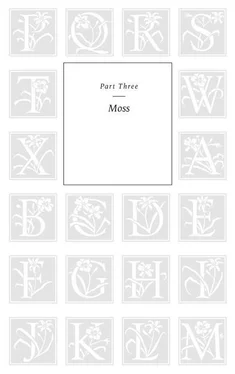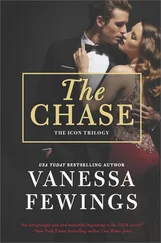Vanessa Diffenbaugh - The Language of Flowers
Здесь есть возможность читать онлайн «Vanessa Diffenbaugh - The Language of Flowers» весь текст электронной книги совершенно бесплатно (целиком полную версию без сокращений). В некоторых случаях можно слушать аудио, скачать через торрент в формате fb2 и присутствует краткое содержание. Жанр: Старинная литература, на английском языке. Описание произведения, (предисловие) а так же отзывы посетителей доступны на портале библиотеки ЛибКат.
- Название:The Language of Flowers
- Автор:
- Жанр:
- Год:неизвестен
- ISBN:нет данных
- Рейтинг книги:4 / 5. Голосов: 1
-
Избранное:Добавить в избранное
- Отзывы:
-
Ваша оценка:
- 80
- 1
- 2
- 3
- 4
- 5
The Language of Flowers: краткое содержание, описание и аннотация
Предлагаем к чтению аннотацию, описание, краткое содержание или предисловие (зависит от того, что написал сам автор книги «The Language of Flowers»). Если вы не нашли необходимую информацию о книге — напишите в комментариях, мы постараемся отыскать её.
The Language of Flowers — читать онлайн бесплатно полную книгу (весь текст) целиком
Ниже представлен текст книги, разбитый по страницам. Система сохранения места последней прочитанной страницы, позволяет с удобством читать онлайн бесплатно книгу «The Language of Flowers», без необходимости каждый раз заново искать на чём Вы остановились. Поставьте закладку, и сможете в любой момент перейти на страницу, на которой закончили чтение.
Интервал:
Закладка:
As we drove to Catherine’s, my head in Elizabeth’s lap, I compared my quiet existence at Elizabeth’s to all the things I had previously understood to compose a life: large families, loud homes, welfare offices, busy cities, violent outbursts. I didn’t want to go back. I liked Elizabeth. I liked her flowers, her grapes, and her concentrated attention. Finally, I realized, I had found a place I wanted to stay.
Pulling off the road, Elizabeth parked the truck and took a deep, nervous breath.
“What did she do to you?” I asked, suddenly interested in a way I had never been before.
Elizabeth looked unsurprised by my question but didn’t answer right away. She stroked my forehead, my cheek, and my shoulder. When she finally spoke, her words were a whisper. “She planted the yellow roses.”
Then she pulled the parking brake and reached for the door handle.
“Come on,” she said. “It’s time to meet Catherine.”
3 .
Grant drove through the city, his oversized truck slowing for tight turns in crowded intersections.
“Grant?” I asked.
“Yeah?”
I searched the crumpled white paper bag for crumbs but didn’t find any. “I don’t want to see Elizabeth.”
“So?”
Like the white poplar, his response was unspecific. “So, what?”
“So, if you don’t want to see her, don’t see her.”
“She won’t come to the farm?”
“She hasn’t visited since the day you came with her, and that was—what?—almost ten years ago?” Grant looked out at the water, and I couldn’t see his face, but when he spoke next, his voice bordered on anger. “She didn’t come for my mother’s funeral, but you think she’ll just show up today because you’re here?”
He rolled down the window, and the wind became a wall between us.
Grant and Elizabeth had no contact. He had said this over donuts, but I hadn’t believed it to be possible. Grant must know the truth, and if he did, what would have kept him from telling Elizabeth? I tried to think of an explanation for the remainder of the drive, but when he stopped in front of the locked metal gate, I still hadn’t come up with anything. He parked and got out to open the gate, then returned to the car and drove through the opening.
The sight of the flowers eclipsed my contemplation. I jumped out of the car and dropped to my knees at the side of the road. There must have been a fenced property line somewhere, but it wasn’t visible, and the stretch of the flowers felt infinite. A gardening stake scrawled with a scientific name I didn’t recognize announced the genus and species of the nearest plant. I held fistfuls of the small yellow flowers to my face as if discovering water after many days in the desert. Pollen clung to my cheeks, and petals rained down on my chest and stomach and thighs. Grant laughed.
“I’ll give you a minute,” he said, climbing back into the truck. “When you’re done here, walk behind the house.” His truck kicked up dust as it bumped over the road.
I lay down in the dirt between the rows, disappearing from sight.
I found Grant behind the farmhouse, sitting at a weathered picnic table. On the table sat a box of chocolates, two glasses of milk, and the scroll I’d given him that morning. I sat down across from him and gestured to the sheet of paper with my head.
“So, what’s the problem?”
Reaching for the chocolates, I scanned the selection. Dark chocolate, mostly, with nuts and caramel. Exactly what I would have chosen.
Grant ran his finger along the paper, pausing on a line and tapping a word I couldn’t read upside down.
“Hazel,” he said. “ Reconciliation . Why shouldn’t it be peace ?”
“Because of the history of the Betulaceae family, divided for centuries into two families, Betulaceae and Corylaceae. Only recently brought together as subgroups within the same family,” I explained. “Bringing together—reconciliation.”
Grant looked down at the table, and I could tell by his expression that he already knew the history of the family. “I’m never going to win with you, am I?”
“You know you aren’t,” I said. “Did you really bring me here to try?”
He looked at the house and then out into the fields.
“No,” he admitted. “I didn’t.” He grabbed a handful of chocolates and stood up. “Eat chocolate. I’ll be right back, and then we’ll go for a walk.”
I drank my milk. When Grant returned, he had an old camera around his neck, black and heavy on an embroidered strap. It looked as if it belonged in the Victorian era with the language of flowers.
He took off the camera and handed it to me. “For your dictionary,” he said, and I immediately understood. I would create my own dictionary, and his flowers would illustrate the pages. “Make me a copy,” he said, “so that we’ll never have a misunderstanding.”
This is all a misunderstanding , I thought to myself, taking the camera. I don’t ride in trucks with young men and sit at picnic tables and eat chocolate. I don’t drink milk while discussing families, flower or otherwise .
Grant walked away, and I followed. He led me to a dirt road heading west, the sun setting over the hills in front of us. The sky was undecided, alternating orange and blue behind approaching thunderclouds, full of the nervous anticipation of rain. I wrapped my arms tightly around myself and lagged a step behind. Grant pointed to the left at a long row of wooden sheds, all padlocked. There had been a dried-flower business, he explained, but he’d shut it down when his mother became ill. He didn’t much care for the corpses of what had once been alive. On the right were acres of illuminated greenhouses, long hoses running out of cracked open doors. Grant approached one and held the door open for me. I slipped inside.
“Orchids,” he said, gesturing to shelves of staked pots. “Not ready for market.” There wasn’t a bloom in sight.
We stepped out and continued along the path, which climbed a hill and dipped down the other side. Somewhere beyond the fields of flowers the vineyard began, but the property line was too far away to see. Eventually, the path curved around the acres of greenhouses and back through open fields until we stood again in front of the farmhouse.
Grant led me down a gradual slope into a rose garden. It was small, carefully tended, and looked like it belonged to the house and not the farm. Grant’s hand brushed mine as we walked, and I took a step away.
“Have you ever given anyone a red rose?” Grant asked. I looked at him as if he was trying to force-feed me foxglove. “Moss rose? Myrtle? Pink?” he pressed.
“Confession of love? Love? Pure love?” I asked, to make sure we shared the same definitions. He nodded. “No, no, and no.”
I picked a pale blush-colored bud and shredded the petals one at a time.
“I’m more of a thistle-peony-basil kind of girl,” I said.
“Misanthropy-anger-hate,” said Grant. “Hmm.”
I turned away. “You asked,” I said.
“It’s kind of ironic, don’t you think?” he asked, looking around us at the roses. They were all in bloom, and not one was yellow. “Here you are, obsessed with a romantic language—a language invented for expression between lovers—and you use it to spread animosity.”
“Why is every bush in bloom?” I asked, ignoring his observation. It was late in the season for roses.
“My mother taught me to prune thoroughly the second week of October, so we would always have roses for Thanksgiving.”
“You cook Thanksgiving dinner?” I asked, glancing toward the farmhouse. The window of the peaked gable was still broken, all these years later. Someone had put plywood behind it.
Читать дальшеИнтервал:
Закладка:
Похожие книги на «The Language of Flowers»
Представляем Вашему вниманию похожие книги на «The Language of Flowers» списком для выбора. Мы отобрали схожую по названию и смыслу литературу в надежде предоставить читателям больше вариантов отыскать новые, интересные, ещё непрочитанные произведения.
Обсуждение, отзывы о книге «The Language of Flowers» и просто собственные мнения читателей. Оставьте ваши комментарии, напишите, что Вы думаете о произведении, его смысле или главных героях. Укажите что конкретно понравилось, а что нет, и почему Вы так считаете.












